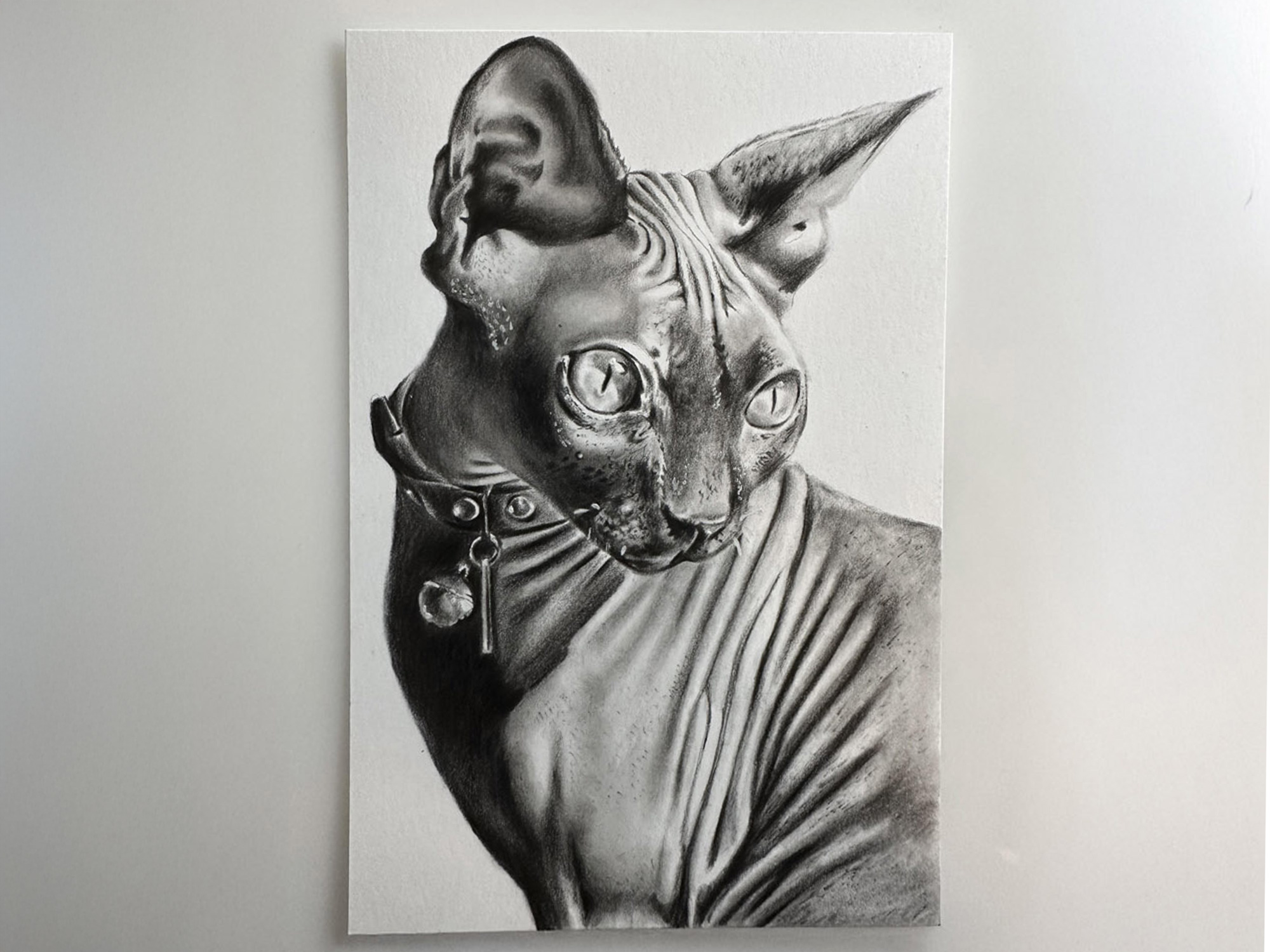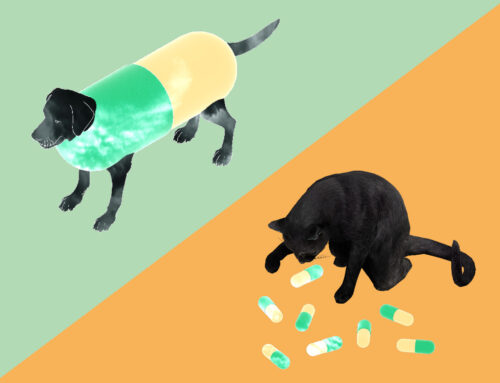Writing by Dr. Sarah J. Cutler
Artwork by Kevin Giron
Our domestic cats can live up to 20 years, and if you’ve had your cat since kittenhood, you’ve likely formed a strong bond with them. Generally speaking, when a cat reaches the age of eight or nine, they are considered senior cats.
When Katonah resident Pamela Stewart got her first cat, her feelings about the breed changed.
“I was never a cat person until I met my current cat 13 years ago,” she says. “I looked into the box my sons brought home, and staring up at me was a five-week-old long-haired tuxedo kitten. He was so adorable—almost too cute, like a cartoon character. I fell in love instantly, and I have felt that bond for over 13 years now. He is my most faithful companion.”
Additionally, adopting a mature cat from a shelter (there are many living in these settings) can also be a wonderful bonding experience, especially if the cat was lucky enough to have positive experiences with humans in the past.
Regardless of when you welcomed them into your home, as your cat ages, it’s important to continue caring for them and meeting their needs while also monitoring common health challenges.
Common struggles for senior cats
As cats age, they tend to adjust their lifestyles to the rhythm of the household.
When they were young, they may have played throughout the night. But with time, they will usually sleep or rest overnight when the house is quiet. Additionally, while younger cats may be more likely to run away from noises or new people, a more experienced cat may be more confident or curious and stick around. And as they become more comfortable in your home, their attachments and dependence on family members can grow stronger.
You may also need to make changes to your home environment so your senior is set up for success. As your feline ages, their agility and mobility can decline, so make sure they have easy access to essential resources.
Those essential resources include:
- Enrichment
- Food
- Litter boxes
- Warm resting spots
- Water
And they also need their people.
Like us humans, their ability to jump as high or run as fast will decline, so adjust accordingly to keep your pet comfortable and content.
Cross River resident Tammy Huang, a first-time cat owner, says her 14-year-old cat has begun to show signs of aging, and he can no longer jump as high as he could when he was younger. But that hasn’t changed his lovable nature.
“We’ve had 東 (Dōng) (which means The East) since he was three months old,” she says. “His friendly and playful character hasn’t changed a bit. He still greets me every day when I come home from work with his symbolic slide-spread-rollover. We all love him.”
How to help your aging feline
“Often, cats are seen as proud or independent in nature, with an ever-regal air about them,” explains Christina Pasqualone, a licensed veterinary technician at Somers Animal Hospital. “But, as they advance in age, it is humbling to see that independence challenged. We often have to provide little daily assistance in the form of easy access to litter boxes, food, water and resources, along with pet steps to avoid added stress to arthritic joints or help them tend to their grooming needs.”
Here are some key steps you can take to help your pet age comfortably:
- Provide ample water. Water should be readily available and attractive. Remember, many cats prefer running water or very fresh water.
- Feed them properly. Canned food is strongly recommended for all senior cats.
- Play gently. Enrichment and gentle play are still very important for cats, even if their play style has slowed down.
- Help them stay clean. Cats sometimes struggle to keep up their hygiene as they age. You can assist in the grooming with combs and brushes.
- Keep their nails trimmed. You or your vet should help them trim their nails.
- Monitor their health with biannual check-ups. Vet checks twice a year are recommended. Be prepared to answer questions about changes in appetite, water consumption, increased urination or any ongoing vomiting, diarrhea, constipation, coughing or breathing issues.
Continue loving them
When you open your mind and heart to living with cats, you will learn that each one is a unique individual, with their own special personality traits that become more endearing with age.
“As a technician, my heart will forever have a designated corner reserved for senior cats,” says veterinary technician Pasqualone. “To see them soften and truly appreciate the extra assistance we can provide, be it in terms of medical treatment or even just additional layers of bedding or heat support, is so rewarding. Many of these felines have been integral, beloved members of their families for decades. To be trusted to provide these animals with dignity, tenderness and comfort in the final chapters of their stories is an absolute honor.”
Mount Kisco resident Steve Martin agrees. He says his almost 19-year-old cat has become even more affectionate as he’s aged.
“Jack has always been an old soul, and now that he’s an old man, he’s wiser and sweeter than ever,” he says. “Wherever he wants to sleep, he sleeps. And when he wants to snuggle, he’ll snuggle—even if it means literally walking across a dog or two to get to a particularly cozy spot or available lap.”
Jack is an inspiration to us all in this new year. Let’s make sure to take some time to slow down and seek comfort, with (or without) your senior cat.
Common health concerns
As your cat ages, your veterinarian will likely recommend blood and urine tests to screen for the most common, and often treatable, feline diseases. The most common are:
- Asthma
- Cardiac disease
- Cognitive decline
- Diabetes
- Hyperthyroidism
- Inflammatory bowel disease
- Kidney decline
- Lymphoma
- Vision and/or hearing loss
This article was published in the January/February 2025 edition of Connect to Northern Westchester.









